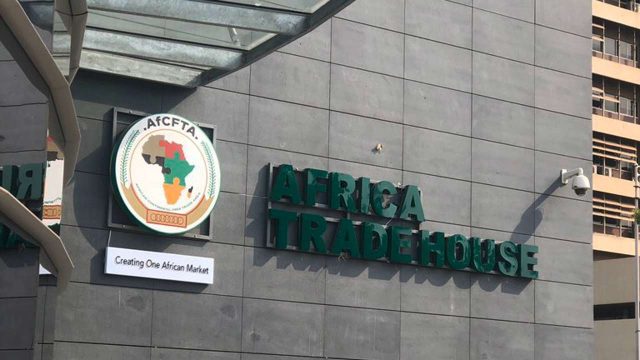Economic analysts have warned that Nigeria’s inadequate infrastructure could undermine the country’s ability to fully benefit from the African Continental Free Trade Area (AfCFTA). Despite the trade pact’s promise of fostering economic integration and boosting intra-African trade, Nigeria’s infrastructure gaps remain a significant obstacle to achieving these objectives.
At a recent economic forum, experts highlighted key deficiencies in transport, energy, and logistics infrastructure that could limit Nigeria’s competitiveness under AfCFTA. Poor road networks, congested ports, unreliable power supply, and inefficient rail systems were cited as critical issues affecting the ease and cost of doing business.
“AfCFTA provides immense opportunities for Nigeria to expand its trade and attract investments,” said economist Dapo Omisore. “However, without addressing infrastructure bottlenecks, the country risks being unable to take full advantage of the agreement.”

Nigeria’s transportation network, particularly road and rail infrastructure, is struggling to support the efficient movement of goods across the country and to neighboring states. Analysts argue that delays and high costs associated with transporting goods make Nigerian products less competitive in regional markets.
Similarly, the persistent challenges at Nigeria’s seaports, including inefficiencies and congestion, exacerbate the situation. Exporters face long delays and high fees, reducing their ability to meet regional demand under the trade pact’s framework.
Energy infrastructure is another critical issue. The unreliability of power supply forces businesses to rely heavily on expensive alternatives like diesel generators, further inflating production costs. This reduces Nigeria’s ability to compete with countries that enjoy lower energy costs and more stable supply chains.
In addition to physical infrastructure, analysts also pointed to weaknesses in digital infrastructure and trade facilitation mechanisms. A lack of robust digital platforms for customs operations and trade documentation poses challenges to seamless cross-border trade.
To address these issues, experts recommend urgent investments in infrastructure development. Public-private partnerships (PPPs) are seen as a viable approach to mobilizing the capital needed to upgrade transport and energy systems. Furthermore, targeted reforms to streamline port operations and modernize customs procedures are essential to reducing delays and improving trade efficiency.
Another critical recommendation is leveraging AfCFTA’s potential to attract foreign direct investment (FDI) into infrastructure projects. By positioning itself as a gateway to Africa’s vast market, Nigeria could secure funding to address its infrastructure gaps while boosting its export capacity.
Policymakers have also been urged to adopt an integrated approach to infrastructure planning, ensuring that projects align with the country’s trade objectives under AfCFTA. Building regional trade corridors, improving access to ports, and enhancing connectivity with other African nations are seen as key priorities.
Despite these challenges, analysts remain optimistic about Nigeria’s potential under AfCFTA. “The opportunities are vast, but they won’t materialize without the right investments and reforms,” Omisore emphasized.
By addressing its infrastructure deficiencies, Nigeria can position itself as a leading player in the AfCFTA framework, unlocking opportunities for growth, job creation, and economic diversification. However, achieving this will require coordinated efforts from the government, private sector, and international partners to ensure the country is prepared to thrive in a more integrated African market.
Support InfoStride News' Credible Journalism: Only credible journalism can guarantee a fair, accountable and transparent society, including democracy and government. It involves a lot of efforts and money. We need your support. Click here to Donate
